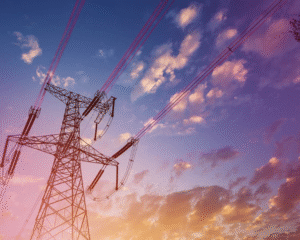Introduction
If you’re planning to stay in Turkey for longer than a short vacation, sooner or later you’ll need to set up basic services in your name, especially if you’re renting or buying a property. Getting your Turkish utility account sorted might not be the most exciting part of settling in, but it’s one of the most essential. Water, gas, electricity, and internet accounts all require a bit of paperwork, a few visits (or calls), and, as with many things in Turkey, a bit of patience.
This guide walks you through the process, step by step, while sharing practical insights to avoid unnecessary delays and headaches.

Why It Matters to Have Utilities in Your Name
Whether you’re applying for a residence permit or just trying to live like a local, having a utility bill in your name is crucial. It’s often required when applying for an ikamet, and it also protects you from unexpected issues down the line. For example, if the previous tenant or landlord failed to pay outstanding bills, you might find yourself cut off from service unless you’ve formally transferred the account.
Beyond the paperwork, it’s also a matter of control. If there’s a problem with your internet connection or a burst pipe, you want to be the one who can call customer service and get results, not someone who needs to go through a third party every time.
What You Need Before You Start
Before visiting any utility office or calling a provider, make sure you have the following items prepared. These will be required in almost every case:
- Your passport and a photocopy
- Your residence permit card (if already issued) or your ikamet appointment paper (randevu)
- Your Turkish tax number (vergi numarası)
- A rental contract (notarized) or your title deed (tapu) if you own the property
- DASK insurance policy (mandatory earthquake insurance, required for water and electricity setup)
- A Turkish phone number for contact and confirmation SMS
While the exact requirements may vary slightly by region or provider, these documents form the backbone of most applications.
Setting Up a Water Account (Su Aboneliği)
Water services in Turkey are generally handled by the local municipality. In Istanbul, for example, the provider is ISKI; in Antalya, it’s ASAT. The process is quite similar regardless of the city.
You can apply in person at the local water authority branch. Some cities also allow online applications through their websites, but this option might only be available to Turkish citizens or those with a verified e-signature. You’ll be required to pay a small deposit, typically around 300–500 TL, which is refundable when you cancel the account later. The service is usually activated within one to two business days.
Registering for Electricity
Electricity is provided by private companies in Turkey, and the one you’ll need depends on your district. Examples include CK Boğaziçi Elektrik in Istanbul or Akdeniz Elektrik in Antalya. Unlike water, electricity providers often have centralized offices that may serve large areas. Bring all the same documents listed earlier, including your DASK policy; this one is non-negotiable for electricity.
Expect to pay a deposit based on average monthly usage. For apartments, this is typically around 500–800 TL. Your electricity should be connected within 24 hours if there are no technical issues.
Getting a Gas Connection
Natural gas (doğalgaz) is commonly used in most parts of Turkey for heating and cooking. In Istanbul, IGDAŞ is the main provider, while other cities like Ankara or Izmir have their own gas authorities.
Applying for a Turkish utility account for gas requires a few extra steps. After you present your documents, a technician will be scheduled to visit the property for an inspection. This is mandatory, even if the previous tenant had gas service. The inspection checks whether the system is safe and compliant. If it passes, the technician opens the valve, and service begins. If not, you may be required to hire a certified plumber to make adjustments. This can cause delays, especially in older properties, so factor it into your timeline.

Setting Up Internet
Internet installation in Turkey has become easier in recent years, with a range of providers offering fiber, DSL, or cable service. Major names include Türk Telekom, Turkcell Superonline, Vodafone, and NetSpeed. Before signing up, check your building’s infrastructure. Not all providers offer fiber in every neighborhood, and internet speed depends heavily on this factor. Some expats rush into the cheapest plan, only to realize their area doesn’t support high speeds.
Visit the nearest service center or apply online. Most companies will send a technician within three to five business days. Some providers require a residence permit number, while others accept your passport and Turkish tax number. Expect to sign a 12- or 24-month contract. Early termination may result in a penalty, so be sure you’re ready to commit or choose a no-contract option if available.
Final Considerations for Expats
Managing a Turkish utility account as a foreigner isn’t complicated, but it does require attention to detail. Make sure every document reflects your current address, including your rental contract, DASK insurance, and tax number. Mismatches are one of the most common causes of delay or rejection.
Also, keep in mind that most providers still rely heavily on SMS communication, so having a functioning Turkish SIM card is vital. This is how you’ll receive bills, reminders, and account updates.
Transferring utilities can be tricky if you don’t speak Turkish. Navyx includes this in our €1,590 and higher-tier packages, ensuring everything is activated properly and legally.
Let Navyx handle the setup, so your new home is ready from day one.
